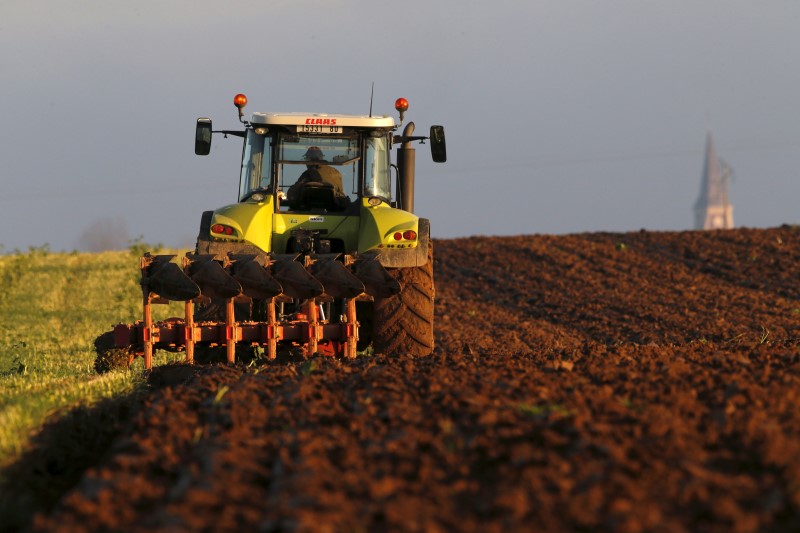(Bloomberg) -- The longer the trade war between the U.S. and China persists, the more permanent the shift in trade flows of agricultural products will become.
That’s according to David Dines, the chief financial officer of Cargill Inc., America’s largest privately-held company. The agribusiness giant on Thursday posted the steepest profit decline in four years partly because of the tumult caused by Donald Trump’s spat with China.
The U.S. agriculture economy has seen tightening credit conditions and a worsening growth outlook partly thanks to the retaliatory tariffs China slapped on major American crops about a year ago. The duties have caused massive ripples in global trade patterns as the Asian nation buys more supplies from South America, including soybeans.
“The longer this goes on, the more permanence we’ll see in the shifts,” Dines said in a telephone interview Thursday. “We are concerned about our farmer customer. It’s been a challenging time for farmers here at home, both from a trade aspect, but obviously the weather aspect.”
American farmers have suffered a series of blows over the past year. As the trade war damps demand, crop inventories have built up, adding to a supply overhang. Meanwhile, a torrent of rain in the U.S. Midwest this year has flooded waterways, washed out farms and even kept consumers from taking to outdoor grills, hurting prospects for meat demand.
Cargill’s net income fell 67% from a year ago in the three months through May. The 154-year-old company has been a vocal proponent for free trade.
On Twitter Thursday morning, Trump complained that China hasn’t increased its purchases of American farm products, a promise he said he had secured at a meeting with Xi Jinping at the Group of 20 summit last month. But Chinese official media said only that Trump hoped China would import more American goods as part of a trade truce. The two sides didn’t release any official documentation of Trump and Xi’s agreement, leaving confusion about how the countries would proceed.
Trump Complains China Hasn’t Met G-20 Promise to Buy Farm Goods
“When I say the new normal, I just think that we will continue to have challenging headwinds of different sorts,” Dines said. It’s “the environment that we live in,” he said.
“It’s more uncertainty, and it’s clearly more areas of volatility.”
